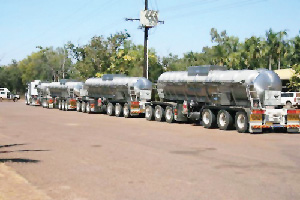
Temporary reduction of fuel levies has no impact on economic growth

By Josef Kefas Sheehama.
The reduction of fuel prices is a manifestation of government and stakeholders’ concerted efforts to revamp the economy through various measures to improve consumers’ spending power.
We applaud the government for this positive development. The fuel pump prices had an effect on the cost of living, as fuel drives the prosperity of the economy for any nation and should therefore be readily available and at affordable prices. With the Russia Ukraine conflict continuing to impact the price of crude oil globally, this has a direct impact on fuel prices in Namibia. But even with lower fuel prices, the economic impact is negligible and the available resources in the equalisation fund can only last so long. Only two to three months then fuel prices will rise again by more than what they have been reduced.
The temporary reduction of levies imposed on fuel is an opportunity costs for the various government agencies that are funded fully or partially from one or more of the myriad of levies added to the basic fuel price. Using estimates of the opportunity cost of oil can improve the assessment of costs and benefits associated with alternative and development strategies. Moreover, setting an appropriate opportunity cost for oil levies enables a cost-benefit analysis and allows the country to decentralize its decision-making, a necessary component for encouraging investment and, thus promoting economic growth and development.
The contrary is true if revenue is decreasing since a business is at risk of not breaking even or having very low profit margins. The only scenario where a decrease in revenue is not damaging to a business is when costs are also decreasing. If costs are also decreasing, the business may be in the same overall financial position albeit on smaller revenues and overheads.
Therefore, I am not convinced that the Road Fund Administration, the National Petroleum Corporation and the Motor Vehicle Accident Fund will have sufficient financial resources to carry on their mandates. It is important to note that levies and taxes imposed on petroleum products are serving functions which are equally important such as the maintenance of roads, the national budget and providing financial assistance to road accident victims. Economics can be unpredictable, and no one can say what the future will bring in an ever-changing world.
Furthermore, I expected the government to do interventions on the prices of basic needs and transportation. This can be done by making a regulation jointly with transport operators to fix a rate. The decrease will be meaningful if it relates to transportation or market operation. Without these, the fuel price decrease will be meaningless.
The market for oil is global, and the removal of Russia from the global supply chain has and will continue to push the price of oil up. With no end in sight for the war in Ukraine the price rises will continue. Geopolitical tensions and supply shortages will support high crude prices. The reason why the government said “temporary relief” is to indicate the unpredictable character of crude markets.
If the government was serious in reducing fuel prices they should have restored the prices to the initial amounts that were there before the increments. That would have had a real positive impact on the economy. Otherwise, this is purely window dressing and it won’t help matters.
The aim is to reduce pump fuel price in the bid of reducing cost of living. The monetary value of the levies and charges is amounting to significant dollars annually. The government has the duty to protect its stakeholders including consumers and businesses. The measure may arguably become a stimulus to the economy through price reduction and increased consumption multiplier effects.
The reduction will have different impacts and implications to various groups. Reduced pump prices are good news for final consumers as it raises disposable incomes. But institutions that receive all or part of their funding from fuel levies, will experience reduced incomes. They will have to either reduce expenditure, look for other sources of income or do both.
To this end, I don’t see the removal of the Price Stabilization and Recovery Levies resulting in a reduction in food prices because there are many factors that affect transportation. It’s not only about fuel prices, it includes running cost and insurance amongst other things. Even if you reduce fuel prices, it’s only one component of the total cost.
The other components are still intact, and they are still going up. So the reduction in fuel price alone will not be enough to compensate for the other costs. That’s why I am saying food prices will not come down, transportation cost will not come down, and the overall effect is that food prices will go up. The poor and vulnerable will still bear the brutal brunt of the rising cost of living.












































